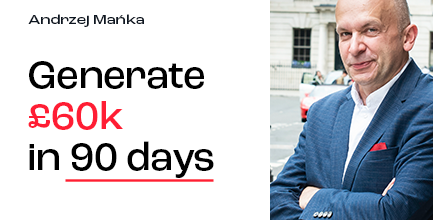What are the golden rules of investment

Categories

I have written this article about the rules of investment for Modest Money.
Investing is the final, and potentially the most profitable, stage of personal finance management.
Before you start investing, you have to first put your personal finances in good order. All debts should be paid, and an emergency capital able to last 3-6 months must be accumulated in case of any life disruptions such as redundancy or serious business losses. And of course, it is advised before you put into practice your investment plan to know how to do regular personal and/or family budgets and to better understand finance.
Investing requires perfect focus as it is quite a complex job.
While 90% of people in society- or possibly even more- live by the devastating rule of instant gratification, a person who wants to invest successfully must develop the ability to delay gratification as much as it is necessary.
In professional investing, emotional IQ matters just as much as technical skills and business and financial knowledge. While learning the subject of your investment- whether real estate, startups or financial instruments- you might choose to put on your desk this maxim: Know thyself, which was carved into Temple of Apollo at Delphi, an oracle which was very popular and highly respected in ancient times.
The investor attitude is a universal one. Whenever you sacrifice something now to gain something else in the future, you’re acting like an investor. It might be a course of public speaking or online marketing training: I sacrifice this year’s weekends to learn new skills in order to attract more customers next year. I invest my time and energy in the next couple of months to reap the benefits later. In Christian philosophy, a person may be ready to sacrifice life on earth to spend eternity in a paradise.
And the final important rule of investing is to be aware of the typical biases we experience, both in our life generally and investing specifically.
Let’s have a look at three of them.
The “It has been always like this” bias (or an anchoring trap) occurs when you assume that something will certainly happen because something strikingly similar has already happened many times before. But if my favourite football team won their last seven matches, it still might lose the next one, regardless of what we believe.
The “Titanic bias” (or Sunk Cost Trap) happens when you were persuaded that the Titanic is unsinkable. When the Titanic sinks, you prefer to ignore reality and focus on your belief that the Titanic cannot sink. Thanks to that, you are losing your precious time postponing the moment you will have to deal with the consequences.
The confirmation bias is when you join other people on the Titanic, who instead of searching for a solution to their serious problem, prefer to maintain the illusion of the unsinkable Titanic.
There are many more biases that can prevent us from being successful investors. Read my article to learn more about them.
The following golden rules will determine whether an investment is successful or not.
Have a good plan before you start.
Don’t procrastinate, because the best moment to start is always now.
Start with an investment that you can handle in the moment, and when you gain some experience invest in a more demanding market.
Understand what you do, and define very accurately an acceptable level of risk for yourself.
Determine what you want to invest in and keep it your business as simple as possible.
Automate whenever possible and use a good smart software, especially when investing in stock and modern financial instruments.
Focus on a few industries or a few types of investments only.
Diversify widely, which means limiting what you are able to manage effectively.
Most of the time, you need to do exactly the opposite of what the majority does.
Invest only as much money as you can afford to lose.
And finally, focus on value rather than price, because a value is more durable and less susceptible to change than ephemeral prices.
To end my article on the rules of investment I would add one thing only: experiment before you start. Not only plan but also make a lot of tests. Testing is what makes our business & financial projects successful.
Read the original article here: The 12 golden rules of investment.


